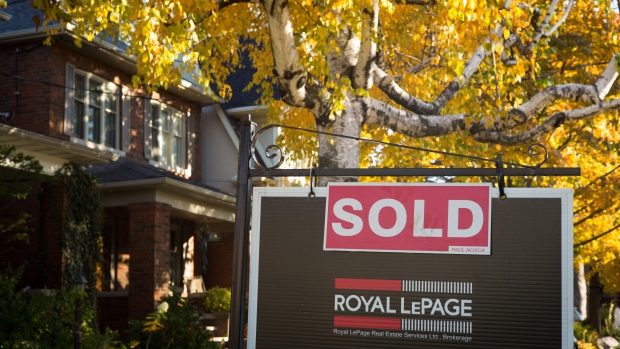
US Small-Business Rent Delinquencies Rise to a Three-Year High
The delinquency rate for US small businesses climbed to a three-year high this month, reflecting the impact of rent spikes and declining revenue, according to a monthly survey.
Latest Videos
The information you requested is not available at this time, please check back again soon.

The delinquency rate for US small businesses climbed to a three-year high this month, reflecting the impact of rent spikes and declining revenue, according to a monthly survey.

Apollo Global Management Inc., KKR & Co. and Stonepeak may inject billions of dollars into a joint venture that will help fund Intel Corp.’s semiconductor fabrication facility in Ireland, according to people with knowledge of the matter.

Cava Group Inc. is planning to further expand its footprint in the Chicago area and other areas of the Midwest, making a contrarian bet that the region will reverse population declines that have plagued it in recent years.

Donald Trump’s longtime personal assistant, who worked for his real estate empire for decades, told a jury that she has a “vague recollection” of seeing Stormy Daniels at Trump Tower sometime before 2015.

Mexican companies are pushing ahead with plans to sell shares, seeking to tap renewed interest from global equity investors, according to the head of Barclays Plc in the country.
Dec 28, 2016

Many factors are driving the Canadian dollar lower despite its petrocurrency moniker which would normally suggest the loonie should be rising along with crude oil prices.
Higher interest rates in the United States, a stronger American dollar and weak economic data at home are chief among them. However, one portfolio manager argues growing expectations for 2017 being the year Canada’s nearly decade-long housing boom comes to an end is also weighing on the currency.
“That is a big part of it,” Lyle Stein, senior portfolio manager at Vestcap Investment Management, told BNN early Wednesday. “When you look at the Canadian economy I was stunned that seven per cent of the economy is related to housing and housing-related activity and it has been like that for the past seven or eight years; if that starts to slow we are losing one of the key growth drivers in our economy and I think that is also coming into the fray.”
“The Great Canadian Short – short the banks, short the housing-related stocks – that may be slipping into the dollar as well but I think we are putting a lot of long-term economic hopes on short-term phenomenon,” Stein said
Royal LePage expects prices in the Vancouver market in particular – where single detached home prices have risen 40 per cent over the past year – to post double-digit declines next year as prices have now far surpassed the growth of other fundamental economic yardsticks such as average income. Canada’s largest real estate services provider expects Toronto – the other especially hot Canadian housing market – to post relatively flat real estate prices in 2017 or possibly even fall slightly as various recent government interventions take effect.
Taxing homebuyers in the Vancouver area who are not Canadian citizens or permanent residents was among the most dramatic inventions made by the British Columbia government in August, though Stein points out a lower Canadian dollar could attract more foreign money into Canadian housing, thereby bolstering price growth.
BNN STORY OF THE YEAR 2016: CANADA'S HOT HOUSING MARKET
“When your dollar is low you become on sale and smart investors with all this liquidity that is coming out of the bond market and looking for a home, why not own a home in Toronto, a home in Vancouver or a home in Ottawa as an alternative asset -- and that is what we are seeing,” Stein said.
He argues, however, that pondering whether that will prove enough to offset any declines from domestic buyers is missing the far more significant risk housing poses to the overall Canadian economy.
“We are putting a lot of responsibility on a very narrow sector and that to me is the bigger problem,” he said. “Twenty years ago we were talking about a low loonie and how great it was for manufacturing. We actually had a manufacturing economy back then and we do not have that today [and] what replaced manufacturing, particularly in Ontario, has been the strength in our housing market. If we lose strength… we could really pull the rug out from under the only pillar that is working in Ontario right now.”
In 2015, roughly 86,000 new jobs were created in Ontario, according to data from Statistics Canada. Nearly half of those positions – 40,500 – were specifically related to real estate sales and leasing, the data showed. Vancouver, meanwhile, topped a recent global ranking by UBS Group of cities most vulnerable to a housing correction.